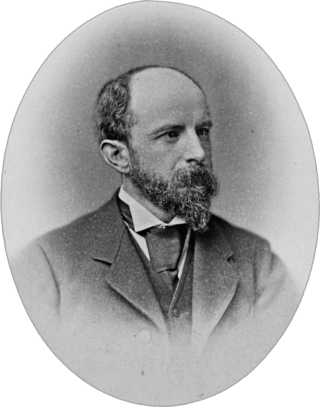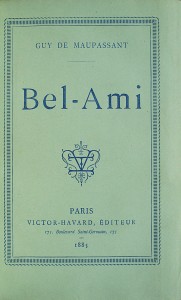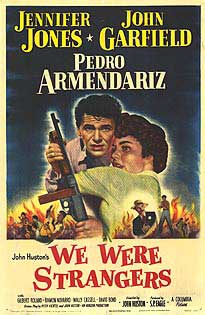
Thomas Jefferson was an American statesman, diplomat, lawyer, architect, philosopher, and Founding Father who served as the third president of the United States from 1801 to 1809. Among the Committee of Five charged by the Second Continental Congress with authoring the Declaration of Independence, Jefferson was the document's primary author. Following the American Revolutionary War and prior to becoming president in 1801, Jefferson was the first U.S. Secretary of State under George Washington and then the nation's second vice president under John Adams.

The 1824 United States presidential election was the tenth quadrennial presidential election. It was held from Tuesday, October 26 to Thursday, December 2, 1824. Andrew Jackson, John Quincy Adams, Henry Clay and William Crawford were the primary contenders for the presidency. The result of the election was inconclusive, as no candidate won a majority of the electoral vote. In the election for vice president, John C. Calhoun was elected with a comfortable majority of the vote. Because none of the candidates for president garnered an electoral vote majority, the U.S. House of Representatives, under the provisions of the Twelfth Amendment, held a contingent election. On February 9, 1825, the House voted to elect John Quincy Adams as president.

The 1828 United States presidential election was the 11th quadrennial presidential election. It was held from Friday, October 31 to Tuesday, December 2, 1828. It featured a repetition of the 1824 election, as President John Quincy Adams of the National Republican Party faced Andrew Jackson of the Democratic Party. Both parties were new organizations, and this was the first presidential election their nominees contested. This election saw the second rematch in presidential history, something that would not occur again until 1840.
The Bloomsbury Group—or Bloomsbury Set—was a group of associated English writers, intellectuals, philosophers and artists in the first half of the 20th century, including Virginia Woolf, John Maynard Keynes, E. M. Forster and Lytton Strachey. This loose collective of friends and relatives was closely associated with the University of Cambridge for the men and King's College London for the women, and they lived, worked or studied together near Bloomsbury, London. According to Ian Ousby, "although its members denied being a group in any formal sense, they were united by an abiding belief in the importance of the arts." Their works and outlook deeply influenced literature, aesthetics, criticism, and economics as well as modern attitudes towards feminism, pacifism, and sexuality.

Abigail Adams was the wife and closest advisor of John Adams, as well as the mother of John Quincy Adams. She was a founder of the United States, and was the first second lady of the United States and second first lady of the United States, although such titles were not used at the time. She and Barbara Bush are the only two women to have been married to U.S. presidents and to have been the mothers of other U.S. presidents.

Henry Brooks Adams was an American historian and a member of the Adams political family, descended from two U.S. presidents. As a young Harvard graduate, he served as secretary to his father, Charles Francis Adams, Abraham Lincoln's ambassador to the United Kingdom. The posting influenced the younger man through the experience of wartime diplomacy, and absorption in English culture, especially the works of John Stuart Mill. After the American Civil War, he became a political journalist who entertained America's foremost intellectuals at his homes in Washington and Boston.

Jacksonian democracy was a 19th century political philosophy in the United States that expanded suffrage to most white men over the age of 21, and restructured a number of federal institutions. Originating with the seventh U.S. president, Andrew Jackson and his supporters, it became the nation's dominant political worldview for a generation. The term itself was in active use by the 1830s.

The Black Dahlia (1987) is a crime fiction novel by American author James Ellroy. Its subject is the 1947 murder of Elizabeth Short in Los Angeles, California, which received wide attention because her corpse was horrifically mutilated and discarded in an empty residential lot. The investigation ultimately led to a broad police corruption scandal. While rooted in the facts of the Short murder and featuring many real-life people, places and events, Ellroy's novel blends facts and fiction, most notably in providing a solution to the crime when in reality it has never been solved. James Ellroy dedicated The Black Dahlia, "To Geneva Hilliker Ellroy 1915-1958 Mother: Twenty-nine Years Later, This Valediction in Blood." The epigraph for The Black Dahlia is "Now I fold you down, my drunkard, my navigator, My first lost keeper, to love and look at later. -Anne Sexton."

Bel-Ami is the second novel by French author Guy de Maupassant, published in 1885; an English translation titled Bel Ami, or, The History of a Scoundrel: A Novel first appeared in 1903.

Scandal, or Priscilla's Kindness is a satirical novel by A. N. Wilson first published in 1983 about a British politician's rise and fall, the latter caused by a relationship with a prostitute. Although the title is the same and there are similarities in the subject-matter, Wilson's book is not the literary basis of the 1989 film Scandal.
The Palliser novels are six novels written in series by Anthony Trollope. They were more commonly known as the Parliamentary novels prior to their 1974 television dramatisation by the BBC broadcast as The Pallisers. Marketed as "polite literature" during their initial publication, the novels encompass several literary genres including: family saga, bildungsroman, picaresque, as well as satire and parody of Victorian life, and criticism of the British government's predilection for attracting corrupt and corruptible people to power.

John Adams was an American statesman, attorney, diplomat, writer, and Founding Father who served as the second president of the United States from 1797 to 1801. Before his presidency, he was a leader of the American Revolution that achieved independence from Great Britain. During the latter part of the war and in the early years of the new nation, he served the U.S. as a senior diplomat in Europe. Adams was the first person to hold the office of vice president of the United States, serving from 1789 to 1797. He was a dedicated diarist and regularly corresponded with many important contemporaries, including his wife and adviser Abigail Adams as well as his friend and rival Thomas Jefferson.

We Were Strangers is a 1949 American adventure drama film directed by John Huston and starring Jennifer Jones and John Garfield. Set in 1933, the film concerns a group of revolutionaries attempting to overthrow the Cuban government of Gerardo Machado. The story is based loosely on an episode in Robert Sylvester's novel Rough Sketch and draws on historical events.

El Señor Presidente is a 1946 novel written in Spanish by Nobel Prize-winning Guatemalan writer and diplomat Miguel Ángel Asturias (1899–1974). A landmark text in Latin American literature, El Señor Presidente explores the nature of political dictatorship and its effects on society. Asturias makes early use of a literary technique now known as magic realism. One of the most notable works of the dictator novel genre, El Señor Presidente developed from an earlier Asturias short story, written to protest social injustice in the aftermath of a devastating earthquake in the author's home town.

Dogeaters is a novel written by Jessica Hagedorn and published in 1990. Hagedorn also adapted her novel into a play by the same name. Dogeaters, set in the late 1950s in Manila, addresses several social, political and cultural issues present in the Philippines during the 1950s.

In Missouri, the 1824 United States presidential election resulted in the state's electoral college votes going to Henry Clay, but then its vote in the House of Representatives contingent election going to the eventual winner, John Quincy Adams. In the 1824 presidential election, five major candidates emerged: Clay, Adams, Andrew Jackson, William H. Crawford, and John C. Calhoun, although Calhoun dropped out to run for the vice presidency. In the new state of Missouri, Crawford had little support, Clay was the popular favorite, Jackson was popular in rural areas, and Adams had some support in urban areas, particularly St. Louis. Clay won the popular vote, with Jackson second, Adams third, and Crawford fourth, and Clay received Missouri's three votes in the electoral college.

Transparency International's 2021 Corruption Perceptions Index gave Chile a score of 67 on a scale from 0 to 100. When ranked by score, Chile ranked number 27 among the 180 countries in the Index, where the country ranked number 1 is perceived to have the most honest public sector.

The Private Affairs of Bel Ami is a 1947 American drama film directed by Albert Lewin. The film stars George Sanders as a ruthless cad who uses women to rise in Parisian society, co-starring Angela Lansbury and Ann Dvorak. It is based on the 1885 Guy de Maupassant novel Bel Ami. The film had a 1946 premiere in Paris, Texas. The score is by Darius Milhaud.

XIII: The Series is an English-language Franco-Canadian TV series that premiered in April 2011 in France and Canada. The series is based on the Belgian graphic novel series of the same name created by Jean Van Hamme and William Vance. It's about an amnesiac protagonist who seeks to discover his concealed past. The TV series follows the events of the 2008 TV film XIII: The Conspiracy. The first season follows the plot in parallel with the existing volumes in the comic series, while the second season diverts into an all-new original story arc.

In 1828, Andrew Jackson, who had lost the 1824 election in a runoff in the United States House of Representatives, despite winning both the popular vote and the Electoral vote by significant margins, ran for President of the United States. He had been nominated by the Tennessee state legislature in 1825, and did not face any opposition from Democratic candidates. Jackson launched his campaign on January 8, 1828, with a major speech on the 13th anniversary of the Battle of New Orleans from 1815, thus marking the birth of the modern Democratic Party. Jackson accepted John C. Calhoun, incumbent vice president under John Quincy Adams, as his running mate.


















